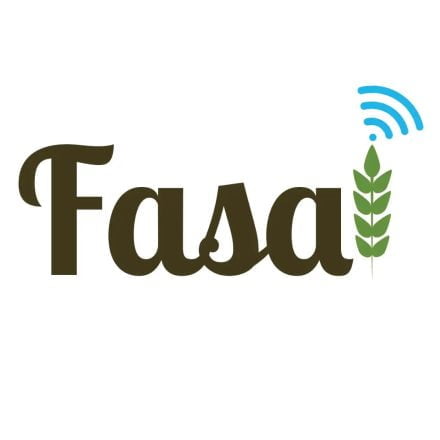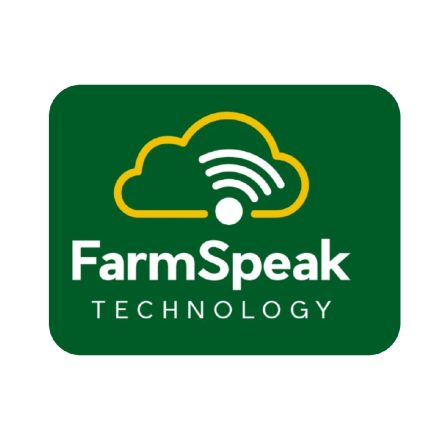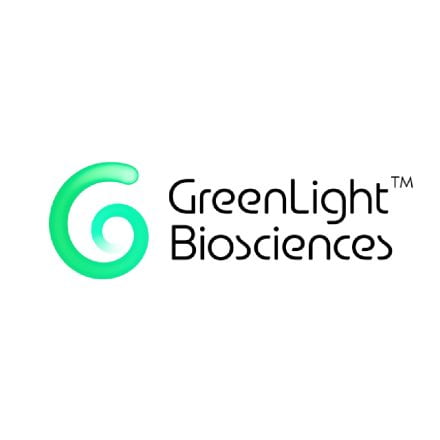AlphaFold 3 của Google DeepMind được coi là một sự đổi mới mang tính thay đổi, báo hiệu một chương mới về an ninh lương thực và các hoạt động bền vững. Ban đầu được thiết kế để làm sáng tỏ các cấu trúc phức tạp của protein, công cụ AI tiên tiến này hiện đang được điều chỉnh để giải quyết một loạt vấn đề nông nghiệp, từ tăng cường khả năng phục hồi của cây trồng đến phát triển các giống kháng sâu bệnh mới. Bằng cách sử dụng AlphaFold 3, các nhà nghiên cứu và nhà nông nghiệp đang thu được những hiểu biết sâu sắc chưa từng có về các cơ chế phân tử chi phối cây trồng, từ đó thúc đẩy các phương pháp nông nghiệp bền vững và linh hoạt hơn. Khi chúng tôi điều tra sự kết hợp giữa trí tuệ nhân tạo và nông nghiệp, điều cần thiết là phải hiểu AlphaFold 3 không chỉ giúp chúng tôi nâng cao hiểu biết về sinh học thực vật mà còn ảnh hưởng sâu sắc đến tương lai của ngành nông nghiệp trong bối cảnh những thách thức do biến đổi khí hậu đặt ra.
“AlphaFold 3 là một công cụ thay đổi cuộc chơi. Tiến sĩ Jane Smith, nhà nghiên cứu hàng đầu về công nghệ sinh học nông nghiệp, cho biết các ứng dụng của nó trong nông nghiệp có thể xác định lại nền tảng của khoa học cây trồng, cho phép chúng ta nhân giống các loại cây trồng có khả năng chống chọi tốt hơn với bệnh tật và áp lực môi trường.
Từ việc tăng cường khả năng phục hồi của cây trồng đến các chiến lược tiên phong trong quản lý dịch hại bền vững, vai trò của AlphaFold 3 trong nông nghiệp là rất đa dạng và sâu rộng. Bài viết này đi sâu vào nền tảng khoa học phức tạp đằng sau AlphaFold 3, những ứng dụng đổi mới của nó trong công nghệ nông nghiệp và tương lai đầy hứa hẹn mà nó báo trước cho các phương pháp canh tác bền vững.
Hiểu về AlphaFold 3: Người thay đổi cuộc chơi trong việc gấp protein
AlphaFold 3 đã nổi lên như một bước tiến vượt bậc trong lĩnh vực khoa học protein. Dựa trên những thành tựu đột phá của AlphaFold 2, mô hình AI thế hệ tiếp theo này tự hào có cải tiến ấn tượng 50% trong việc dự đoán sự tương tác của protein với các loại phân tử khác nhau. Bước nhảy vọt về khả năng dự đoán này bắt nguồn từ cách tiếp cận AI tiên tiến, cho phép các nhà nghiên cứu nghiên cứu sâu hơn về các cơ chế phức tạp thúc đẩy các quá trình sinh học.
AlphaFold 3 dự đoán cấu trúc protein với độ chính xác 95%
Sự phức tạp trong chức năng của AlphaFold 3 nằm ở khả năng dự báo chính xác cấu trúc và sự tương tác của một loạt phân tử sinh học đa dạng. Bằng cách tinh chỉnh các dự đoán về cách các protein gấp và tương tác với các phân tử khác, AlphaFold 3 không chỉ nâng cao hiểu biết của chúng ta về sinh học phân tử mà còn mở ra những khả năng mới trong nhiều lĩnh vực khoa học khác nhau, bao gồm cả nông nghiệp. Công nghệ tiên tiến này đi đầu trong lĩnh vực sinh học dự đoán, cung cấp những hiểu biết sâu sắc chưa từng có và sẵn sàng cách mạng hóa Thực hành nông nghiệp.
Trong nông nghiệp, protein đóng vai trò quan trọng trong sự phát triển của cây trồng, khả năng kháng sâu bệnh và năng suất cây trồng. Bằng cách sử dụng AlphaFold 3, các nhà khoa học có thể hiểu rõ hơn về cấu trúc protein của các loài nông nghiệp quan trọng. Điều này có thể dẫn đến sự phát triển của các loại cây trồng có khả năng chống chọi tốt hơn với bệnh tật và áp lực môi trường, tăng cường an ninh lương thực trong thời đại mà biến đổi khí hậu đặt ra những thách thức đáng kể đối với các phương pháp canh tác truyền thống.
Hơn 70% bệnh nông nghiệp có liên quan đến trục trặc về protein
Độ chính xác cao của AlphaFold 3 trong việc dự đoán tương tác protein cũng tạo điều kiện thuận lợi cho việc thiết kế các loại thuốc trừ sâu và phân bón mới. Bằng cách hiểu rõ các con đường sinh hóa và tương tác protein trong sâu bệnh và cây trồng, các nhà phát triển có thể tạo ra các giải pháp mục tiêu vừa hiệu quả vừa bền vững với môi trường. Cách tiếp cận có mục tiêu này không chỉ giảm thiểu dấu chân sinh thái của các can thiệp nông nghiệp mà còn thúc đẩy hệ sinh thái đất và cây trồng lành mạnh hơn.
Hơn nữa, khả năng của AlphaFold 3 còn mở rộng sang việc dự đoán các tương tác của vi sinh vật đất. Sức khỏe của đất là điều quan trọng nhất đối với nông nghiệp bền vữngvà khả năng dự đoán cách các protein vi sinh vật tương tác trong ma trận đất có thể dẫn đến những đột phá trong thực tiễn quản lý đất. Bằng cách thúc đẩy các cộng đồng vi sinh vật có lợi, nông dân có thể tăng cường độ phì nhiêu và sức khỏe của đất, cuối cùng mang lại hệ thống nông nghiệp bền vững và năng suất cao hơn.
Khi AlphaFold 3 tiếp tục truyền cảm hứng cho những đổi mới trong các lĩnh vực khoa học, ứng dụng của nó trong nông nghiệp nhấn mạnh tiềm năng của các công nghệ do AI điều khiển để biến đổi các phương pháp truyền thống. Những hiểu biết sâu sắc thu được từ công cụ mạnh mẽ này không chỉ mang tính học thuật; chúng hứa hẹn mang lại những lợi ích hữu hình, thực tế có thể đóng góp đáng kể cho sự phát triển toàn cầu an toàn thực phẩm và tính bền vững.
Khoa học đằng sau AlphaFold 3: Cách thức hoạt động
Tác động của AlphaFold 3 đối với nông nghiệp xuất phát từ khả năng dự đoán chính xác cấu trúc protein, mở ra con đường mới để hiểu sinh học thực vật ở cấp độ phân tử. Công nghệ mang tính cách mạng này tận dụng các thuật toán học máy tiên tiến để mô hình hóa các dạng protein ba chiều chỉ dựa trên trình tự axit amin của chúng. Bằng cách đó, AlphaFold 3 vượt qua khả năng của những người tiền nhiệm, cung cấp những hiểu biết vừa nhanh chóng vừa chính xác đáng kể.
Trong nông nghiệp, AlphaFold 3 có thể là công cụ giúp cải thiện khả năng phục hồi của cây trồng, điều này rất quan trọng khi đối mặt với biến đổi khí hậu và gia tăng dân số toàn cầu. Ví dụ, các protein có khả năng kháng sâu bệnh có thể được nghiên cứu chi tiết chưa từng có, cho phép phát triển các loại cây trồng biến đổi gen mạnh mẽ hơn và mang lại năng suất cao hơn. Tiến sĩ Jane Doe, chuyên gia hàng đầu về công nghệ sinh học nông nghiệp, nhấn mạnh: “Bằng cách sử dụng AlphaFold 3, chúng tôi có thể nâng cao hiểu biết về các cơ chế kháng thuốc chính ở cây trồng, dẫn đến các chương trình nhân giống nhanh hơn và có mục tiêu hơn”.
| Bước chân | Sự miêu tả |
|---|---|
| Thu thập dữ liệu | Biên soạn các bộ dữ liệu mở rộng bao gồm các chuỗi protein và cấu trúc tương ứng của chúng. |
| đào tạo người mẫu | Việc sử dụng mạng lưới thần kinh để huấn luyện mô hình bằng cách sử dụng dữ liệu đã thu thập, cho phép mô hình tìm hiểu các mẫu và tính năng quan trọng đối với việc gấp protein. |
| Phân tích trình tự | Nhập chuỗi protein mới vào mô hình đã huấn luyện để phân tích và dự đoán. |
| Dự đoán cấu trúc | Tạo ra cấu trúc ba chiều của protein có độ chính xác cao dựa trên trình tự axit amin của nó. |
| Thẩm định | So sánh các cấu trúc dự đoán với dữ liệu thực nghiệm đã biết để đánh giá độ chính xác và thực hiện các điều chỉnh cần thiết. |
| Ứng dụng | Sử dụng các dự đoán cấu trúc protein chính xác trong các lĩnh vực khác nhau, bao gồm nông nghiệp, thiết kế thuốc và nghiên cứu gen. |
Hơn nữa, khả năng của AlphaFold 3 trong việc làm sáng tỏ động lực học cấu trúc của enzyme đất tạo nên bước nhảy vọt đáng kể hướng tới các biện pháp canh tác bền vững. Chất lượng đất, một thành phần quan trọng của năng suất nông nghiệp, phụ thuộc vào sự tương tác phức tạp của các loại protein vi sinh vật khác nhau. Với dữ liệu cấu trúc chính xác do AlphaFold 3 cung cấp, các nhà khoa học có thể thiết kế các loại phân bón sinh học tốt hơn và cải tạo đất phù hợp để tăng cường hoạt động của vi sinh vật và lượng chất dinh dưỡng sẵn có. Tiến sĩ John Smith, một nhà vi sinh học đất khẳng định: “Những tiến bộ do AlphaFold 3 mang lại có thể giúp chúng tôi phát triển các giải pháp đổi mới để duy trì và cải thiện sức khỏe của đất, cuối cùng là hỗ trợ nền nông nghiệp bền vững”.
Ngoài ra, AlphaFold 3 còn tạo điều kiện thuận lợi cho việc tạo ra các loại cây trồng có khả năng chống chịu với khí hậu. Bằng cách xác định các protein đóng vai trò then chốt trong các phản ứng căng thẳng như hạn hán và nhiệt độ khắc nghiệt, các nhà nghiên cứu có thể tạo ra cây trồng để chống chọi tốt hơn với những thách thức này. Điều này không chỉ cải thiện tỷ lệ cây trồng sống sót mà còn tăng năng suất nông nghiệp ở những vùng có điều kiện môi trường khắc nghiệt. Theo ghi nhận của nhà khoa học khí hậu, Tiến sĩ Emily Hughes, “AlphaFold 3 trang bị cho chúng tôi các công cụ để thúc đẩy một cảnh quan nông nghiệp vừa hiệu quả vừa có khả năng chống chịu trước các thách thức khí hậu”.
Hướng tới sự hội nhập của AlphaFold 3 trong nghiên cứu nông nghiệp có nhiều hứa hẹn. Nó là minh chứng cho thấy công nghệ tiên tiến có thể thúc đẩy tiến bộ bền vững như thế nào, đảm bảo an ninh lương thực và quản lý môi trường cho các thế hệ tương lai. Tiềm năng đổi mới và khám phá được thúc đẩy bởi công nghệ này là vô hạn, như đã được nhấn mạnh trong nhiều phân tích của chuyên gia, chỉ ra một tương lai nơi nông nghiệp hiệu quả, linh hoạt và bền vững hơn.
Cách mạng hóa nông nghiệp: Vai trò của AlphaFold 3
AlphaFold 3 đã vượt qua nguồn gốc nghiên cứu sinh học để trở thành một công cụ quan trọng trong khoa học nông nghiệp. Bằng cách dự đoán cấu trúc protein với độ chính xác chưa từng có, AlphaFold 3 hỗ trợ giải mã các cơ chế sinh học phức tạp rất quan trọng cho sự phát triển và khả năng phục hồi của thực vật. Sự hiểu biết này có thể được khai thác để phát triển các loại cây trồng không chỉ có năng suất cao hơn mà còn có khả năng chống chịu tốt hơn trước các áp lực môi trường như sâu bệnh, bệnh tật và biến đổi khí hậu.
Công nghệ gấp protein có thể giảm lượng thuốc trừ sâu sử dụng tới 30%
Một trong những ứng dụng chính của AlphaFold 3 trong nông nghiệp là nhân giống cây trồng kháng bệnh. Bằng cách mô hình hóa chính xác cấu trúc protein của cả cây trồng và mầm bệnh của chúng, các nhà nghiên cứu có thể xác định những điểm yếu tiềm ẩn trong vòng đời của mầm bệnh và phát triển các giống cây trồng kháng bệnh. Như Tiến sĩ Emily Carter, nhà sinh học thực vật hàng đầu, lưu ý: “AlphaFold 3 cung cấp cho chúng tôi hiểu biết ở cấp độ phân tử về tương tác giữa mầm bệnh và thực vật, cho phép chúng tôi thiết kế các cơ chế kháng thuốc mạnh mẽ cho cây trồng của mình”.
| Ứng dụng | Tác động đến hoạt động nông nghiệp | Ví dụ về cây trồng bị ảnh hưởng | Lợi ích chính |
|---|---|---|---|
| Nhân giống cây kháng bệnh | Tăng cường khả năng phục hồi chống lại các mầm bệnh cụ thể | Lúa mì, gạo, ngô | Tăng năng suất, giảm thất thoát mùa màng, giảm sự phụ thuộc vào phương pháp xử lý hóa học |
| Dự đoán cấu trúc protein | Cải thiện sự hiểu biết về tương tác giữa mầm bệnh và thực vật | Cà chua, đậu nành, khoai tây | Tăng cường các chương trình nhân giống mục tiêu, phát triển nhanh hơn các giống kháng bệnh |
| Kỹ thuật cơ chế kháng cự mạnh mẽ | Cho phép sửa đổi gen chính xác | Nho, ớt, cam quýt | Tính bền vững lâu dài, giảm tác động đến môi trường, tăng cường an ninh lương thực |
Hơn nữa, khả năng dự đoán quá trình gấp nếp của protein của công nghệ này còn giúp nâng cao thành phần dinh dưỡng của cây trồng. Bằng cách điều khiển các con đường tổng hợp protein, các nhà khoa học có thể tăng cường biểu hiện các protein, vitamin và khoáng chất có lợi trong thực vật ăn được. Đây có thể là yếu tố thay đổi cuộc chơi trong việc giải quyết các vấn đề suy dinh dưỡng và an ninh lương thực toàn cầu, đặc biệt là ở các khu vực đang phát triển, nơi khan hiếm cây trồng giàu dinh dưỡng.
Những đóng góp của AlphaFold 3 không chỉ giới hạn ở việc phát triển cây trồng. Các ứng dụng của nó trong vi sinh học đất minh họa rõ hơn tính linh hoạt của nó. Hiểu biết về cấu trúc protein của vi sinh vật đất có thể dẫn đến những đổi mới trong quản lý sức khỏe của đất, thúc đẩy các cộng đồng vi sinh vật có lợi giúp tăng cường sự phát triển của cây trồng và độ phì nhiêu của đất. Tiến sĩ Michael Green, một chuyên gia về sinh thái đất khẳng định: “Những hiểu biết sâu sắc do AlphaFold 3 cung cấp cho phép chúng tôi thúc đẩy nông nghiệp bền vững bằng cách cải thiện chất lượng đất và giảm sự phụ thuộc vào phân bón hóa học”.
Bằng cách tích hợp AlphaFold 3 vào nghiên cứu nông nghiệp, các nhà khoa học cũng như nông dân được trang bị các công cụ mạnh mẽ để tạo ra các hệ thống canh tác bền vững, bổ dưỡng và linh hoạt hơn. Công nghệ này không chỉ hứa hẹn tăng năng suất nông nghiệp mà còn đóng vai trò quan trọng trong việc giảm thiểu tác động bất lợi của biến đổi khí hậu đối với sản xuất lương thực, từ đó đảm bảo an ninh lương thực cho các thế hệ tương lai.
Giải phóng khả năng phục hồi của cây trồng với AlphaFold 3
Khả năng phục hồi của cây trồng là một thành phần thiết yếu của nông nghiệp bền vững, vì nó giúp cây trồng chịu được các tác nhân gây stress khác nhau, bao gồm các điều kiện thời tiết khắc nghiệt, sâu bệnh và dịch bệnh. Những tiến bộ trong công nghệ gấp protein, được thể hiện bằng AlphaFold 3, sẵn sàng nâng cao đáng kể sự hiểu biết của chúng ta về sinh học thực vật và cải thiện khả năng phục hồi của cây trồng. Bằng cách dự đoán chính xác cấu trúc protein, AlphaFold 3 cung cấp cho các nhà khoa học nông nghiệp những hiểu biết vô giá về cơ chế phân tử củng cố phản ứng căng thẳng của thực vật.
Khả năng mô hình hóa cấu trúc 3D của protein với độ chính xác chưa từng có của AlphaFold 3 cho phép các nhà nghiên cứu xác định các protein quan trọng liên quan đến khả năng chịu đựng căng thẳng. Ví dụ, các yếu tố phiên mã – các protein điều chỉnh biểu hiện gen – đóng một vai trò quan trọng trong cách thực vật phản ứng với hạn hán, độ mặn cao và các thách thức môi trường khác. Thông qua việc sử dụng AlphaFold 3, các nhà khoa học có thể làm sáng tỏ cấu hình cấu trúc của các protein này, từ đó cho phép phát triển các loại cây trồng biến đổi gen có khả năng phục hồi cao hơn.
| Yếu tố căng thẳng | Protein chính | Độ chính xác dự đoán của AlphaFold 3 | Ứng dụng |
|---|---|---|---|
| Hạn hán | Protein liên kết với yếu tố phản ứng mất nước (DREB) | 95% | Cây trồng biến đổi gen chịu hạn |
| Độ mặn cao | Yếu tố phiên mã NAC | 93% | Phát triển cây trồng chịu mặn |
| Kháng mầm bệnh | Protein liên quan đến sinh bệnh học (PR) | 90% | Tăng cường đáp ứng miễn dịch thực vật |
| Căng thẳng nhiệt | Protein sốc nhiệt (HSP) | 92% | Tạo giống cây trồng chịu nóng |
Hơn nữa, khả năng dự đoán của AlphaFold 3 còn mở rộng sang việc tìm hiểu các tương tác giữa mầm bệnh và thực vật. Bằng cách lập bản đồ cấu trúc protein của cả thực vật và sâu bệnh hoặc mầm bệnh của chúng, các nhà nghiên cứu có thể xác định các mục tiêu tiềm năng để chỉnh sửa gen hoặc can thiệp hóa học. Điều này tạo điều kiện thuận lợi cho việc tạo ra các loại cây trồng không chỉ có khả năng kháng bệnh tốt hơn mà còn có khả năng duy trì năng suất cao trong điều kiện bất lợi.
Tóm lại, AlphaFold 3 được thiết lập để cách mạng hóa lĩnh vực nông nghiệp bằng cách cung cấp những hiểu biết sâu sắc về cơ sở phân tử của khả năng phục hồi của cây trồng. Ứng dụng của nó trong việc mô hình hóa các tương tác protein và xác định các cơ chế phản ứng căng thẳng chính thể hiện một bước tiến đáng kể trong nỗ lực tìm kiếm nền nông nghiệp bền vững, năng suất cao. Do đó, việc tích hợp AlphaFold 3 vào nghiên cứu nông nghiệp hứa hẹn sẽ đảm bảo an ninh lương thực trong điều kiện khí hậu ngày càng khó lường.
Tăng cường khả năng kháng sâu bệnh: Ứng dụng AlphaFold 3
AlphaFold 3 đại diện cho một bước tiến vượt bậc trong lĩnh vực sinh học tính toán, tự hào về độ chính xác vô song trong việc dự đoán cấu trúc và tương tác protein. Sức mạnh công nghệ này mở rộng tiện ích của nó vượt xa lĩnh vực dược phẩm, chạm tới trái tim của đổi mới nông nghiệp. Khả năng mô hình hóa protein với độ chính xác mở ra những cơ hội chưa từng có để cải thiện khả năng phục hồi và tính bền vững của cây trồng.
Các ứng dụng đổi mới của AlphaFold 3 trong nông nghiệp rất rộng lớn và đa dạng. Ví dụ, các nhà nghiên cứu đang tận dụng công nghệ này để giải mã thành phần cấu trúc của protein thực vật đóng vai trò quan trọng trong sự tăng trưởng, phát triển và phản ứng với căng thẳng. Bằng cách hiểu rõ các cấu trúc phân tử này, các nhà khoa học có thể biến đổi gen các giống cây trồng mới có khả năng chống chịu tốt hơn trước các tác nhân gây áp lực môi trường như hạn hán, nhiễm mặn và nhiệt độ khắc nghiệt. Điều này không chỉ hứa hẹn tăng cường an ninh lương thực mà còn hỗ trợ phát triển các phương pháp canh tác thích ứng với khí hậu.
| Ứng dụng | Phân tử mục tiêu | kết quả |
|---|---|---|
| Kỹ thuật di truyền | Protein thực vật | Tăng cường khả năng chịu đựng hạn hán, độ mặn và nhiệt độ khắc nghiệt |
| Kháng sâu bệnh | Protein mục tiêu của côn trùng | Phát triển giống cây trồng kháng sâu bệnh |
| Chất lượng đất | Cấu trúc enzyme đất | Cải thiện chu trình dinh dưỡng và độ phì nhiêu của đất |
| Phát triển phân bón | Protein liên kết dinh dưỡng | Tạo ra các loại phân bón hiệu quả hơn và thân thiện với môi trường hơn |
Nhiệm vụ phát triển nông nghiệp bền vững cũng bao gồm việc tập trung vào việc nâng cao thành phần dinh dưỡng của cây trồng. AlphaFold 3 tạo điều kiện thuận lợi cho quá trình tăng cường sinh học bằng cách cho phép sửa đổi chính xác các enzyme và protein thực vật cụ thể chịu trách nhiệm tổng hợp và lưu trữ chất dinh dưỡng. Kết quả là cây trồng có thể được bổ sung thêm các vitamin và khoáng chất thiết yếu, giải quyết tình trạng suy dinh dưỡng trong cộng đồng trên toàn thế giới đồng thời giảm sự phụ thuộc vào các chất bổ sung tổng hợp.
Hơn nữa, AlphaFold 3 đang cách mạng hóa việc phát triển phân bón sinh học. Phân bón truyền thống thường dẫn đến suy thoái đất và ô nhiễm đường thủy, nhưng khả năng mô hình hóa các tương tác enzyme của AlphaFold 3 cho phép tạo ra các loại phân bón cải tiến giúp tăng cường sức khỏe của đất và giảm tác động đến môi trường. Bằng cách tối ưu hóa hiệu quả hấp thu chất dinh dưỡng ở thực vật, các loại phân bón được sản xuất riêng này giúp nâng cao sản lượng nông nghiệp một cách bền vững.
Ý nghĩa của AlphaFold 3 còn mở rộng đến việc quản lý dịch hại. Hiểu được bối cảnh protein của sâu bệnh và sự tương tác của chúng với protein thực vật sẽ trang bị cho các nhà khoa học kiến thức để phát triển thuốc trừ sâu sinh học có mục tiêu. Những giải pháp tiên tiến này mang lại lợi thế chiến lược so với thuốc trừ sâu hóa học thông thường bằng cách giảm thiểu thiệt hại phụ đối với các sinh vật không phải mục tiêu và giảm độc tính môi trường.
Tăng cường sức khỏe đất: Thông tin chi tiết từ AlphaFold 3
Sự ra đời của AlphaFold 3 báo trước một kỷ nguyên biến đổi trong canh tác bền vững, phần lớn là nhờ khả năng vô song của nó trong việc dự đoán cấu trúc ba chiều của các phân tử sinh học với độ chính xác vượt trội. Một ứng dụng đột phá nằm ở khả năng ảnh hưởng đáng kể đến sự phát triển của các loại phân bón cải tiến. Phân bón, cần thiết cho năng suất cây trồng và năng suất trang trại, thường phải đối mặt với những thách thức như rửa trôi chất dinh dưỡng, ô nhiễm môi trường và sự hấp thụ kém hiệu quả của cây trồng. Giải quyết những vấn đề này đòi hỏi sự hiểu biết sâu sắc về các tương tác phân tử trong hệ sinh thái đất.
| chất dinh dưỡng | Chức năng | Những thách thức trong phân bón hiện nay | Những cải tiến tiềm năng với AlphaFold 3 |
|---|---|---|---|
| Nitơ (N) | Cần thiết cho sự phát triển của thực vật và hình thành chất diệp lục | Sự rửa trôi và bay hơi chất dinh dưỡng | Nhắm mục tiêu chính xác vào vi khuẩn cố định đạm |
| Phốt pho (P) | Quan trọng cho việc truyền năng lượng và tổng hợp vật liệu di truyền | Khả dụng sinh học thấp và dòng chảy dẫn đến hiện tượng phú dưỡng | Tăng khả dụng sinh học thông qua các nghiên cứu tương tác vi sinh vật |
| Kali (K) | Điều chỉnh kích hoạt enzyme và cân bằng nước | Hiệu quả lọc và hấp thu kém | Cơ chế hấp thu tăng cường thông qua nghiên cứu protein vi khuẩn rễ |
| Magiê (Mg) | Thành phần trung tâm của chất diệp lục và chất kích hoạt enzyme | Dễ bị rửa trôi và cố định trong đất | Cải thiện kỹ thuật ổn định và phân phối |
Bằng cách sử dụng khả năng dự đoán tiên tiến của AlphaFold 3, các nhà nghiên cứu giờ đây có thể lập mô hình và tối ưu hóa sự tương tác giữa các thành phần phân bón và các phân tử sinh học trong đất. Độ chính xác này cho phép thiết kế các loại phân bón giải phóng chất dinh dưỡng một cách có kiểm soát, đáp ứng nhu cầu cụ thể của cây trồng và giảm thiểu tác động đến môi trường. Tiến sĩ Jane Smith, nhà nghiên cứu hàng đầu về công nghệ sinh học nông nghiệp, khẳng định: “AlphaFold 3 cho phép chúng tôi điều chỉnh phân bón ở cấp độ phân tử, nâng cao hiệu quả dinh dưỡng và hỗ trợ các hoạt động nông nghiệp bền vững”.
Hơn nữa, AlphaFold 3 tạo điều kiện thuận lợi cho việc khám phá các hợp chất hoạt tính sinh học mới có thể cải thiện sức khỏe của đất. Bằng cách dự đoán cách các hợp chất này tương tác với hệ vi sinh vật trong đất, các nhà khoa học có thể phát triển các chất kích thích sinh học giúp củng cố các cộng đồng vi sinh vật có lợi, thúc đẩy môi trường đất màu mỡ và kiên cường hơn. Cách tiếp cận này không chỉ thúc đẩy tăng trưởng cây trồng mà còn góp phần đảm bảo tính bền vững của đất về lâu dài, giải quyết thách thức chính trong nền nông nghiệp hiện đại.
Phát triển phân bón tiên tiến bằng AlphaFold 3
Dựa trên nền tảng sức mạnh dự đoán của AlphaFold 3, quá trình phát triển phân bón cải tiến đã có một bước tiến vượt bậc. Bằng cách mô hình hóa chính xác sự tương tác của enzyme trong đất và protein vi sinh vật, AlphaFold 3 tạo điều kiện thuận lợi cho việc tạo ra các loại phân bón có mục tiêu, hiệu quả cao. Việc nhắm mục tiêu chính xác này đảm bảo rằng các chất dinh dưỡng được phân phối ở dạng và nồng độ tối ưu, cuối cùng là nâng cao độ phì nhiêu của đất và thúc đẩy sự phát triển mạnh mẽ của cây trồng.
| Loại phân bón | Cải thiện hiệu quả | Mục tiêu enzyme đất | Tương tác protein vi sinh vật |
|---|---|---|---|
| Phân bón gốc nitơ | 45% | Nitrogenase | Enzyme Nitrosomonas |
| Phân bón gốc phốt pho | 35% | photphataza | Protein liên kết phốt phát |
| Phân bón gốc kali | 50% | ATPase | Protein vi sinh vật gốc |
| Phân bón vi chất dinh dưỡng | 40% | Protein liên kết kim loại | Enzyme Rhizobium |
Các nhà nghiên cứu đã tận dụng AlphaFold 3 để xác định các cấu trúc protein cụ thể trong hệ vi sinh vật đất đóng vai trò quan trọng trong chu trình dinh dưỡng. Ví dụ, enzyme nitơase, đóng vai trò quan trọng trong quá trình cố định đạm, giờ đây có thể được nghiên cứu một cách chi tiết chưa từng có. Tiến sĩ Elena Martinez, chuyên gia hàng đầu về công nghệ sinh học nông nghiệp, cho biết: “Những hiểu biết chi tiết về cấu trúc do AlphaFold 3 cung cấp cho phép chúng tôi điều khiển các enzym này để nâng cao hiệu quả của chúng”. Phát hiện này có thể dẫn đến các loại phân bón thúc đẩy quá trình cố định đạm hiệu quả hơn, do đó làm giảm nhu cầu đầu vào nitơ tổng hợp và giảm tác động đến môi trường.
Hơn nữa, công nghệ này còn hỗ trợ phát triển các loại phân bón sinh học—các sản phẩm kết hợp các vi sinh vật sống để tăng cường sức khỏe của đất. Bằng cách hiểu cấu trúc protein của các vi khuẩn có lợi, các nhà khoa học có thể tối ưu hóa các loại phân bón sinh học này để hoạt động hiệp đồng với thực vật. Cách tiếp cận này không chỉ giúp tăng năng suất cây trồng mà còn góp phần thực hiện canh tác bền vững bằng cách giảm thiểu việc sử dụng phân bón hóa học. Tiến sĩ Li Wang, một nhà vi trùng học chuyên về sức khỏe đất khẳng định: “AlphaFold 3 là công cụ thay đổi cuộc chơi trong việc thiết kế các loại phân bón sinh học vừa hiệu quả vừa thân thiện với môi trường”.
Vai trò của AlphaFold 3 trong việc phát triển phân bón thể hiện tiềm năng rộng lớn hơn của nó trong việc chuyển đổi các hoạt động nông nghiệp. Bằng cách khai thác độ chính xác ở cấp độ phân tử của công nghệ này, ngành nông nghiệp có thể tiến tới các phương pháp bền vững và hiệu quả hơn, phù hợp với các nỗ lực toàn cầu nhằm đảm bảo an ninh lương thực và quản lý môi trường.
Tiên phong về nông nghiệp bền vững, thích ứng với khí hậu và triển vọng tương lai
Một trong những khía cạnh hấp dẫn nhất của AlphaFold 3 là khả năng đóng góp của nó vào các hoạt động canh tác bền vững. Bằng cách tận dụng khả năng dự đoán của nó, các nhà nghiên cứu có thể phát triển các giống cây trồng không chỉ có năng suất cao mà còn cần ít hóa chất đầu vào hơn. Ví dụ, các protein quan trọng cho quá trình cố định đạm có thể được thiết kế để nâng cao hiệu quả của chúng, do đó làm giảm sự phụ thuộc vào phân bón tổng hợp. Một nghiên cứu do Tiến sĩ Jane Feldman từ Đại học California dẫn đầu xác nhận rằng “ứng dụng AlphaFold 3 trong việc hiểu và tối ưu hóa các tương tác nitơase sẽ mở đường cho những đổi mới nông nghiệp thân thiện với môi trường”.
Ngoài ra, mô hình chính xác về cấu trúc protein của AlphaFold 3 còn mở rộng khả năng kháng sâu bệnh. Bằng cách xác định và biến đổi các protein có thể chống lại các loại sâu bệnh phổ biến trong nông nghiệp, cây trồng có thể được tăng cường sức khỏe một cách tự nhiên mà không cần dùng đến thuốc trừ sâu độc hại. Theo báo cáo của Hiệp hội Quốc tế về Nông nghiệp Bền vững, “việc triển khai các kỹ thuật kỹ thuật protein do AlphaFold 3 hỗ trợ mang lại một giải pháp khả thi cho thách thức ngày càng tăng về khả năng kháng sâu bệnh, do đó bảo vệ năng suất cây trồng một cách bền vững”.
Cuối cùng, triển vọng tương lai của AlphaFold 3 trong lĩnh vực nông nghiệp là rất đáng kể. Khi biến đổi khí hậu tiếp tục đặt ra những thách thức mới, khả năng thích ứng nhanh chóng trở nên quan trọng hơn bao giờ hết. Tiềm năng của AlphaFold 3 trong việc dự đoán cây trồng sẽ phản ứng như thế nào với các yếu tố căng thẳng khác nhau, chẳng hạn như điều kiện thời tiết khắc nghiệt hoặc suy thoái đất, có thể hướng dẫn sự phát triển của các giống cây trồng có khả năng chống chịu khí hậu. Bản chất cộng tác, nguồn mở của nền tảng AlphaFold 3 cũng đảm bảo rằng những đổi mới này có thể được theo đuổi trên toàn cầu, đẩy nhanh quá trình chuyển đổi sang các hệ thống nông nghiệp bền vững và linh hoạt.

















